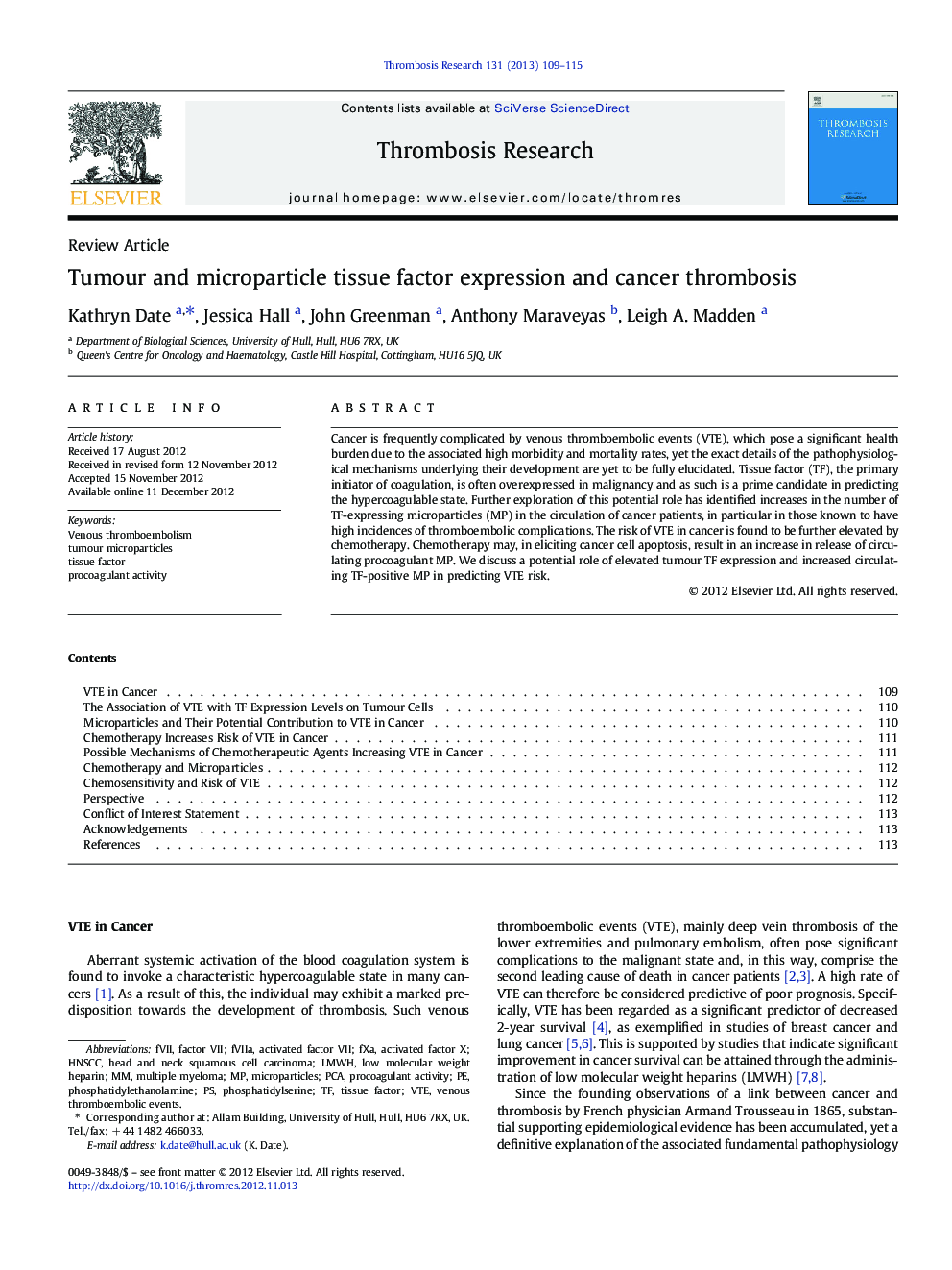| Article ID | Journal | Published Year | Pages | File Type |
|---|---|---|---|---|
| 6002811 | Thrombosis Research | 2013 | 7 Pages |
Cancer is frequently complicated by venous thromboembolic events (VTE), which pose a significant health burden due to the associated high morbidity and mortality rates, yet the exact details of the pathophysiological mechanisms underlying their development are yet to be fully elucidated. Tissue factor (TF), the primary initiator of coagulation, is often overexpressed in malignancy and as such is a prime candidate in predicting the hypercoagulable state. Further exploration of this potential role has identified increases in the number of TF-expressing microparticles (MP) in the circulation of cancer patients, in particular in those known to have high incidences of thromboembolic complications. The risk of VTE in cancer is found to be further elevated by chemotherapy. Chemotherapy may, in eliciting cancer cell apoptosis, result in an increase in release of circulating procoagulant MP. We discuss a potential role of elevated tumour TF expression and increased circulating TF-positive MP in predicting VTE risk.
